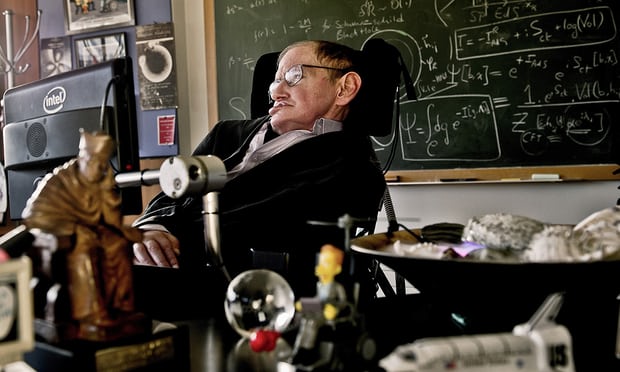His family released a statement in the early hours of Wednesday morning confirming his death at his home in Cambridge.
Hawking’s children, Lucy, Robert and Tim said in a statement: “We are deeply saddened that our beloved father passed away today.
“He was a great scientist and an extraordinary man whose work and legacy will live on for many years. His courage and persistence with his brilliance and humour inspired people across the world.
Stephen Hawking, whose brilliant mind ranged across time and space though his body was paralyzed by disease, has died, a family spokesperson said early Wednesday.
The best-known theoretical physicist of his time, Hawking wrote so lucidly of the mysteries of space, time and black holes that his book, A Brief History of Time, became an international bestseller, making him one of science's biggest celebrities since Albert Einstein.
Even though his body was attacked by amyotrophic lateral sclerosis, or ALS, when Hawking was 21, he stunned doctors by living with the normally fatal illness for more than 50 years. A severe attack of pneumonia in 1985 left him breathing through a tube, forcing him to communicate through an electronic voice synthesizer that gave him his distinctive robotic monotone.
But he continued his scientific work, appeared on television and married for a second time.
Hawking once estimated he worked only 1,000 hours during his three undergraduate years at Oxford. “You were supposed to be either brilliant without effort, or accept your limitations,” he wrote in his 2013 autobiography, My Brief History. In his finals, Hawking came borderline between a first and second class degree. Convinced that he was seen as a difficult student, he told his viva examiners that if they gave him a first he would move to Cambridge to pursue his PhD. Award a second and he threatened to stay at Oxford. They opted for a first.
Those who live in the shadow of death are often those who live most. For Hawking, the early diagnosis of his terminal disease, and witnessing the death from leukaemia of a boy he knew in hospital, ignited a fresh sense of purpose. “Although there was a cloud hanging over my future, I found, to my surprise, that I was enjoying life in the present more than before. I began to make progress with my research,” he once said. Embarking on his career in earnest, he declared: “My goal is simple. It is a complete understanding of the universe, why it is as it is and why it exists at all.”
He spoke also of death, an eventuality that sat on a more distant horizon than doctors thought. “I have lived with the prospect of an early death for the last 49 years. I’m not afraid of death, but I’m in no hurry to die. I have so much I want to do first,” he said.
What astounded those around him was how much he did achieve. He leaves three children, Robert, Lucy and Timothy, from his first marriage to Jane Wilde, and three grandchildren.



0 comments: